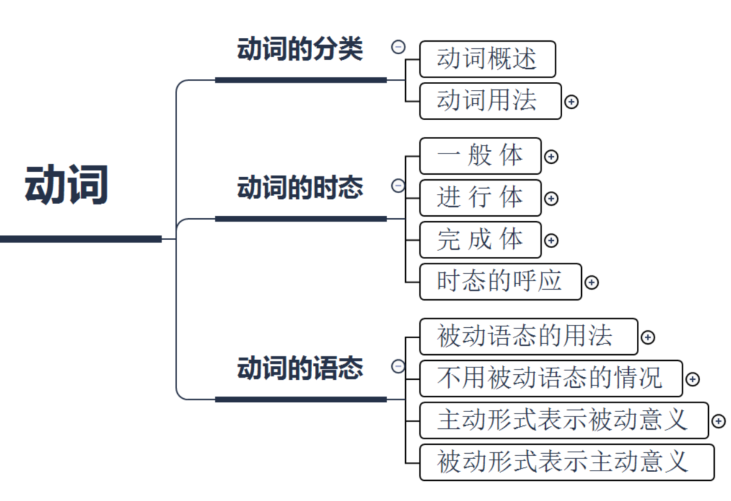教师招聘考试英语动词

预测一:情态动词表 “ 推测 ”
(1)对现在事实的推测:用 “ 情态动词 +be”“ 情态动词 +be doing” 或 “ 情态动词 +v.”
① must 是对现在事实的肯定推测,can’t 是对现在事实的否定推测。例如:
The light is still on, so he must be at home. 灯亮着,他肯定在家。
It can’t be Tony’s car, because he is too poor to afford it. 这不可能是托尼的车,他没钱买车。
② should 表肯定推测,预测可能性;意为 “(按道理)应该 ”。例如:
It’s 4:30. They should be in New York by now. 现在是 4 点半,他们应该到达纽约了。
③ may 与 might 表示推测,一般不用于疑问句。(might 比 may 可能性更低。)
(2)对过去事实的推测:用 “ 情态动词 +have+ 过去分词 ”
① must have + done 对过去发生的行为的肯定推测,意为 “ 一定,肯定 ”,例如:
It must have rained last night. The ground is wet. 昨天肯定下雨了,因为地面是湿的。
注意否定或疑问形式用 can’t have done,而不用 mustn’t have done。
② can/could have + done 表示对过去事情做肯定、可能性较大的推测。例如:
There is no light in the room. Where can they have gone? 屋内没有开灯,他们可能去哪儿了?
can’t have done/couldn’t have done 不可能(对过去发生行为的怀疑或不肯定)。例如:
Mr. Smith can’t have gone to Beijing, for I saw him in the library just now.
③ may(might)have + done 表示对过去事情做可能性很小的推测。例如:
We can’t find her. She may have got lost. 我们没有找到她,她可能走丢了。
(3)对将来发生的行为的推测,表示可能干了某事。例如:
Who knows what will happen? You may even have married by then. 谁知道将来会发生什么?
也许到那个时候你已经结婚了。
预测二:一般体的常见用法
(1)一般现在时表示客观真理,客观存在,科学事实,格言或警句。
The earth moves around the sun. 地球绕太阳转动。
(2)一般现在时用于图片说明、电影说明、戏剧内容及场景解说等。
Jack passes the ball to John and John catches it. He jumps and casts it into the basket. (比赛解说)
杰克把球传给约翰,约翰接过球,跳起来把球投进篮里。
(3)come, go, arrive, leave, start, begin, return 的一般现在时可以表示将来,主要用来表示
在时间上已确定或安排好的事情。
The train leaves at six tomorrow morning. 火车明天上午六点开。
(4)一般过去时表示在过去一段时间内,经常性或习惯性的动作。例如:
When I was a child, I often played football in the street. 我小的时候,常在马路上踢足球。
(5)be going + 不定式,表示将来。通常有三种用法:①主语的意图,即将做某事;②计
划,安排要发生的事;③有迹象要发生的事。
It’s cloudy outside. It is going to rain. 外面乌云密布,是要下雨了。
预测三:完成体的常见用法
(1)现在完成时用来表示过去的动作或状态持续到现在并且已经完成,并对现在造成影响,
可能持续发生下去。其构成为:主语 + 助动词(have/has)+ 动词的过去分词。通常有两种基本用法:
①影响性用法:表示之前已发生或完成的动作或状态,其结果的影响现在还存在。
例如:I’ve already read this book. 我已经读过这本书了。
②持续性用法:表示过去已经开始,持续到现在的动作和状态。例如:
I haven’t seen him for three years. 我三年没有见过他了。
(2)现在完成时的高频句型
① This/It is the+ 序数词 +that 从句(从句中用现在完成时)。例如:
This is the first time that I have heard her sing. 这是我第一次听她唱歌。
② This/It is the+ 形容词最高级 + 名词 +that 从句(从句中用现在完成时)。例如:
It is the best film that I have ever seen. 这是我看过的最好看的电影。
③ since + 过去一个时间点(如具体的年、月、日期、钟点、1980、last month、half past
six)。例如:I have been here since 2016. 2016 年起,我一直在这儿。
④ since + 一段时间 + ago。例如:
I have been here since five months ago. 我在这儿,已经有五个月了。
⑤ since + 从句。例如:
Great changes have taken place since you left. 你走后,变化可大了。
(3)过去完成时表示过去某一时间或动作以前已经发生或完成了的动作,它表示动作的
时间是 “ 过去的过去 ”,其构成是:had + 过去分词。例如:
When the police arrived, the thieves had run away. 警察到达时,小偷们早就跑了
预测四:主动形式表示被动意义
(1)表主语的某种属性特征的动词,如:wash,clean,cook,iron,cut,sell,read,
wear,draw,write 等,用主动形式表示被动意义。例如:
The book sells well. 这本书很畅销。
This knife cuts easily. 这刀子很锋利。
(2)blame,let(出租),remain,rent,build 等,用主动形式表示被动意义。例如:
I was to blame for the accident. 事故发生了,我该受指责。
Much work remains. 还有许多活要干。
(3)在 need,require,want,worth(形容词),deserve 后的动名词用主动形式表示被动意义。例如:
The door needs repairing. = The door needs to be repaired. 门该修了。
(4)系动词 look,sound,feel,smell,taste,appear,seem,go,prove,turn,stay,
become,fall,get,grow,keep+ 形容词 / 名词构成系表结构,用主动形式表示被动意义。例如:
The steel feels cool. 钢摸起来很冷。
It has gone bad. 它已经变质了。
1. Shakespeare’s play Hamlet ______ into at least ten different films over the past years.
A. had been made
B. was made
C. has been made
D. would be made
2. Despite the previous rounds of talks, no agreement ______ so far by the two sides.
A. has been reached
B. was reached
C. will reach
D. will have reached
3. The old woman who ______ in the deserted house alone for ten years has been settled in a
nursing home now.
A. lived
B. has lived
C. had lived
D. has been living
4. We have decided that either you or the headmaster ______ the prize to those gifted students at
the meeting tomorrow.
A. is handing out
B. are to hand out
C. are handing out
D. is to hand out
5. My dictionary ______. I have looked for it everywhere but still ______ it.
A. has lost; do not find
B. is missing; do not find
C. has lost; have not found
D. is missing; have not found
6. —The water was left running all night long.
—Yes. It seemed that John ______. He was the last one to leave the lab.
A. was to be blamed
B. was to blame
C. had been blamed
D. should be blamed
7. In my opinion, keeping dogs should not be banned, but ______ to certain areas.
A. to be limited
B. limiting
C. to limit
D. limited
8. Someone ______ the tap on, for the water was running over and flooding the bathroom.
A. could leave
B. must have left
C. might leave
D. should have left










